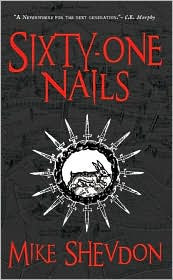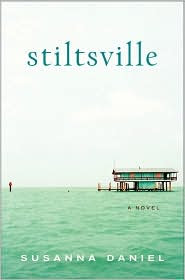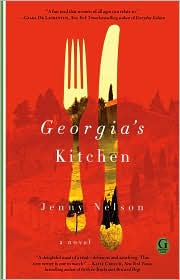 She applied the Page 69 Test to Dark Moon of Avalon and reported the following:
She applied the Page 69 Test to Dark Moon of Avalon and reported the following: In Dark Moon of Avalon, a retelling of the Trystan and Isolde legend, the young former High Queen Isolde and her friend and protector Trystan are reunited in a new and dangerous quest to keep the usurper Lorde Marche and his Saxon allies from the throne of Britain. To save Britain's throne, Isolde must navigate a political landscape torn by infighting and civil war and turn bitter enemies into allies. Yet her own greatest challenge lies in saving the life of the man she loves and mending her own wounded heart.Read the prologue to Dark Moon of Avalon, and watch the video trailer.
Page 69 of Dark Moon of Avalon finds Isolde in the midst of a meeting of Britain's High Council of Kings. Born a royal princess, Isolde is barely twenty years old but already has been forced into marriage twice by the political maneuverings of the petty kings on the council. Now, as former High Queen, she is the only woman grudgingly permitted a voice in the council's meetings. And as she listens to the quarreling and political jockeying amongst Britain's petty kings--kings who must be forced to unite if they are to survive the coming war with invading Saxon forces--Isolde feels "an almost physical revulsion for ... men who, Briton or Irish or Saxon, knew only one thing, so it seemed. How to fight, to kill, to hurt--how to carve one another up into bloody, aching pieces--and then send the fragments home to be either buried or stitched together as best their women could."
This scene encapsulates both Isolde's position in the political landscape of Dark Age Britain and one of the central challenges she must overcome in Dark Moon of Avalon. As a high-born woman, she has throughout her life had little control over her own destiny. Her Britain is a dark and often brutal place, where might truly does make right, laws are made by the men who conquer in battle, and women are little more than chattel to be given in marriage wherever their male guardians deem most advantageous. In Dark Moon of Avalon, Isolde must prove to Britain's High Council that a woman can be as valued and courageous a fighter as any warrior, and serve her country through more than just political marriage. And through her journey, she must fight for the right to control her own destiny and follow her own heart.
Learn more about the book and author at Anna Elliott's website and blog.
Visit the complete list of books in the Page 69 Test Series.
--Marshal Zeringue


























